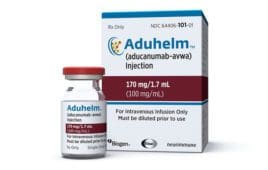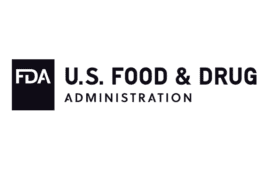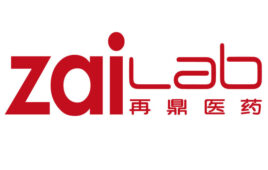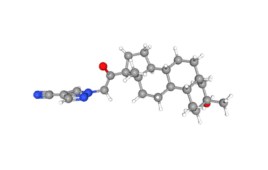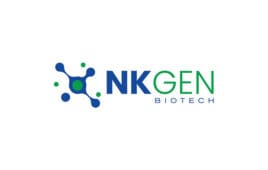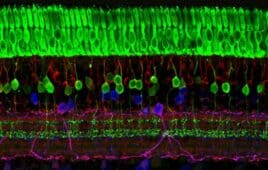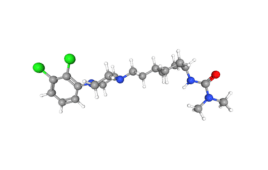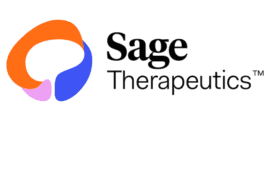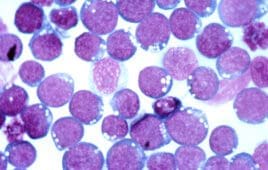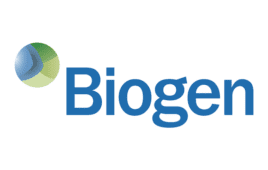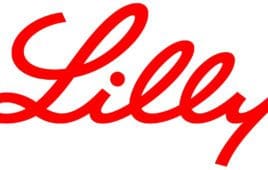The FDA continues to signal openness to psychedelic-based therapies. Following its recent Breakthrough Therapy Designation (BTD) for a potential LSD-based anxiety treatment, the agency has extended the same status to Cybin Inc.‘s CYB003 for major depressive disorder (MDD). The move marks the first FDA Breakthrough Therapy Designation for an adjunctive, psychedelic-based Major Depressive Disorder treatment.…
Top pharma companies ranked by 2023 R&D spend
Which major pharmaceutical company leads the way in research and development? Data reveals that the top R&D spender in 2023 was Merck & Co., by a wide margin. While Pfizer had almost as much revenue as Merck ($60.1 billion vs. $58.5 billion), its R&D ratio was on the lower end at 18.29%, or $10.7 billion.…
Gain Therapeutics’ supercomputer-driven therapy offers potential Parkinson’s breakthrough
The Bethesda biotech Gain Therapeutics, armed with supercomputer firepower, aims to disrupt Parkinson’s disease treatment. Their GCase regulator, named GT-02287, completely restored motor function in a recent animal study. GCase, short for glucocerebrosidase, targets both lysosomal and mitochondrial dysfunction. In Parkinson’s, the failure of cellular powerhouses (mitochondria) and recycling centers (lysosomes) disrupts essential functions. This…
A timeline of Aduhelm’s rise and fall
The story of Aduhelm has been rocky now for years. Biogen turned heads when its controversial Alzheimer’s therapy won accelerated approval from the FDA against the advice of its own advisory panel in mid-2021. The company had high hopes for the antibody at that point, pricing it at an average of $56,000 per year. Aduhelm…
Core trends in 2023 FDA drug approvals: Oncology, neurology and hematology dominate
2023 was a big year for hematology, neurology and oncology, with the medical specialties seeing the most FDA approvals. In terms of sponsors, Pfizer had the most approvals with six total, followed by UCB and Chiesi, each with three apiece. When looking at commercial prospects, AstraZeneca’s respiratory syncytial virus antibody Beyfortus could be the biggest…
Zai Lab’s unified approach to tackling cancer, autoimmune, and neurological diseases
Zai Lab is a global biopharmaceutical company founded in 2014 and based in China and the U.S.. Led by Chairperson and CEO Dr. Samantha Du, the company now has more than 2,000 employees internationally. Focusing on developing novel therapies for oncology, autoimmune disorders, infectious diseases, and neurological disorders, it has built a broad pipeline of…
Unicorn gene-delivery firm VectorBuilder eyes future breakthroughs
Genetic tools are growing more powerful by the day and hold immense medical promise. Kristofer Mussar, managing director of VectorBuilder GmbH who holds a Ph.D. in molecular genetics and epigenetics, noted that in the wake of the pandemic, genetic research requires increased awareness and ethical stewardship to responsibly tap into its power. While the current…
The future of MDD treatment: A comparative table highlighting the emergence of fast-acting therapies
The treatment landscape for major depressive disorder (MDD) continues to diversify, and in the coming years, psychedelic options may be available, including COMPASS Pathways COMP360 and the deuterated psilocybin analog CYB003 from Cybin. CYB003 demonstrated a significant -14.08 point reduction in MADRS score, a 53.3% response rate, and a 20% remission rate at a 12mg…
Is the new $15,900 postpartum depression pill worth it?
Sage Therapeutics has pegged the wholesale acquisition price of the oral postpartum depression (PPD) drug Zurzuvae (zuranolone) at $15,900 for a 14-day course of the therapy. The drug, co-developed by Biogen, won the FDA green light in August. The companies plan on launching the drug in December. The DEA has classified zuranolone as Schedule IV,…
Five pharmaceuticals featured on Time’s list of top inventions alongside other medical breakthroughs
Time magazine’s most recent roundup of 200 inventions included an array of product types, spanning household gadgets and AI applications. Five distinct pharmaceuticals also made the list, not counting a shipping container for biologics and a vaccine for bees. Among the notable pharmaceutical advances on the list are a novel postpartum depression drug, a novel…
NKGen Biotech’s SNK01 ‘natural killer’ cell therapy for Alzheimer’s gets FDA nod for clinical trial
Santa Ana, California–based NKGen Biotech has received FDA clearance to begin a phase 1/2a trial for their “natural killer” cell therapy, SNK01, designed to treat Alzheimer’s Disease. The autologous, non-genetically modified natural killer (NK) cell therapy involves extracting a patient’s own cells through a blood draw, and then processing them to enhance their natural abilities…
Quantum leaps in drug discovery? NobleAI joins forces with Microsoft while King’s College London aligns with Kvantify
The word “revolutionize” gets thrown around a lot in describing the potential of emerging technologies. But quantum computing could make good on the promise to disrupt healthcare applications ranging from drug discovery to medical imaging. Theoretically, a quantum computer with 300 quantum bits (qubits) could crunch more calculations in an instant than there are atoms…
Will GLP-1 drugs transition from obesity and diabetes to diverse clinical indications?
The explosive sales growth of GLP-1 drugs has analysts projecting that the antiobesity drugs could be a $44 billion market by 2030. Some observers are more upbeat, projecting that the sector could be worth more than $100 billion in the coming years. Pfizer CEO Albert Bourla projects that the market will reach $90 billion by…
Alzheimer’s at an inflection point as drug and diagnostics breakthroughs emerge
Alzheimer’s disease research appears to be hitting its stride, thanks to recent therapeutic advances in drug development and the emergence of biomarkers to detect the condition. “All the pieces of the puzzle of precision medicine, which is already quite common in oncology, are now in place,” said Hartmuth Kolb, vice president, neuroscience biomarkers and R&D…
Molecular photoswitches: Illuminating the future of inherited retinal disease treatment
Vision, one of our most valued senses, is a complex orchestration of light-sensing photoreceptors, neurons, and intricate pathways leading to the brain. Central to this native biological system are the photoreceptors – the rods and cones – cells that are responsible for capturing light and initiating visual perception. For many with inherited retinal diseases (IRDs),…
Analysis shows that cariprazine may have cost savings potential for treating MDD
Vraylar (cariprazine), which recently scored FDA approval as an adjunctive treatment for Major Depressive Disorder (MDD), could have positive implications for healthcare resource utilization. A new analysis suggests that this atypical antipsychotic, initially developed by Allergan (now AbbVie), could curb healthcare spending of MDD treatment. In the economic analysis, patients who received cariprazine as their…
Early data suggest adjunctive cariprazine could be a promising tool for tackling stubborn anhedonia in MDD
The dopamine D3 receptor-targeting cariprazine could potentially be a new tool for managing anhedonia, one of the most stubborn symptoms of major depressive disorder (MDD). Characterized by a lack of enjoyment in previously pleasurable activities, anhedonia has been “difficult to address with traditional antidepressants,” said Dr. Vladimir Maletic, coauthor of a poster presented at the…
Key considerations for the FDA approval of zuranolone for postpartum depression treatment
Mixed-bag approval hit Sage hard but spared Biogen Sage Therapeutics recently notched an FDA win for the neuroactive steroid zuranolone (Zurzavae) for postpartum depression (PPD). For major depressive disorder (MDD), however, the agency handed the drug a complete response letter. In the wake of the news, Sage’s stock is down 46% to $19.52, while BIIB,…
Epstein-Barr virus: Trigger and driver of multiple sclerosis?
Recent research has indicated a link between Epstein-Barr virus (EBV) and multiple sclerosis (MS), with some researchers going as far as to say that EBV might be a potential trigger of MS. However, it remains unclear whether the virus also drives the progression of the disease. Current treatments focus largely on moderating inflammation. In this…
FDA approves zuranolone for postpartum depression but issues complete response letter for major depressive disorder
FDA’s approval of Zurzuvae for PPD could mark a significant shift in the fight against postpartum depression (PPD). On August 4, the agency gave the green light for the oral medication, although it declined its use for major depressive disorder (MDD), citing insufficient evidence of effectiveness. The former approval represents a milestone as the first ever…
The story behind Biogen’s 1,000 job cuts and R&D refocus
Cambridge-based biotech Biogen has unveiled plans to cut 1,000 jobs, or 11% of its workforce, as it prepares for the launch of its newly approved Alzheimer’s disease drug, Leqembi (lecanemab) that it developed with Eisai. This move follows a pattern of significant layoffs, with the company having cut 885 jobs last year after the troubled…
Phase 3 trial shows donanemab reduces Alzheimer’s symptoms by 35%
According to results from the Phase 3 TRAILBLAZER-ALZ 2 study published in JAMA, the monoclonal antibody donanemab significantly slowed cognitive and functional decline in patients with early symptomatic Alzheimer’s disease by approximately 35% at one year compared to placebo. The trial enrolled 1736 patients across 277 research centers in 8 countries. Another monoclonal antibody, Leqembi…
Apitegromab shows sustained benefits in phase 2 SMA trial
Cambridge, Massachusetts–based biopharma Scholar Rock has been making encouraging progress in the development of apitegromab, a potential new therapy for spinal muscular atrophy (SMA), a genetic disease characterized by progressive muscle weakness and atrophy. Apitegromab, a novel monoclonal antibody, works through a unique mechanism of action — it binds to and inhibits the precursor form…
Leqembi could mark new era in Alzheimer’s treatment progress: An overview of the evolving drug development scene
Today, the FDA granted traditional approved to lecanemab (branded as Leqembi), a monoclonal antibody from Eisai and Biogen for adult patients with Alzheimer’s disease. The agency made the decision on the basis of a confirmatory trial that showed its clinical benefit. The drug, which reduces the formation of amyloid plaques in the brain, is the…
Quantum-inspired power could brighten drug discovery
In the realm of drug discovery, the Harvard-educated chemist Nick Paras, Ph.D. compares the early stages of identifying new compounds to a game of Zelda, in which a player at times must navigate through dark rooms and solve puzzles to progress. Similarly, medicinal chemists and biochemists too must traverse the vast, often obscure landscape of…



